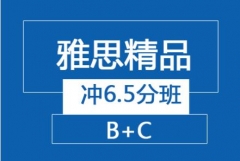I'm not satisfied at all.
我一点也不满意。
I'm not satisfied.
我不满意。
Nothing is satisfactory.
没有什么令人满意的。
Look at what you did.
看看你都千了些什么。
Think about what you did.
想想你都干了些什么。
It's awful.
= It's terrible/dreadful.
实在太糟了。
It sucks.
= It stinks.
糟透了。
以上这两句话不可在正式场合使用,属于粗语。但在美国人的日常生活中,使用频率非常高,尤其是句。
Not be up to much.
不怎么样。
I don't think much of him.
我认为他不怎么样。
think much of“看重”
No more excuses!
= Don't make any excuses!
不要再找借口了!
It's not a good excuse.
这不是个好借口。
There's no excuse.
没有借口。
I'm not pleased with the plan.
= I'm not content with the plan.
我对这项计划不太满意。
It is not good enough.
这还不够好。
None too good.
不太好。
Not good.
不好。
Not so good.
不怎么好。
None too great.
不太好。
It's not all that great.
没那么好。
当“enough”作为副词修饰形容词/副词时,要放在形容词/副词的后面,如上面例句。
I'm dissatisfied with my salary.
我对工资不满意。
I'm unsatisfied with the result.
我对结果不满意。
dissatisfied a. 不满意的
unsatisfied a. 不满意的
dissatisfied和unsatisfied都与with连用,表示“对…不满”。
2.实用对话
Expressing Dissatisfaction表示不满意
Alice: What's up, Jason?
爱丽丝:怎么了,杰森?
Jason: Well, I'm not in a good mood these days.
杰森:我较近心情不好。
Alice: Why? What's going on?
爱丽丝:为什么?怎么了?
Jason: I got a new place after graduation, but it turns out the place isn't all that great. I'm not satisfied at all.
杰森:毕业后我找了一个新住处,结果那地方太差劲了。我一点也不满意。
Alice: Why's that?
爱丽丝:怎么回事?
Jason: It's not very clean and it's always noisy. It's awful. You know I like quiet.
杰森:那里不太干净,还吵得厉害!实在太糟了。你知道的,我喜欢清静。
Alice: I know. You work hard. and want to come home and relax and sleep well.
爱丽丝:我知道,你工作很辛苦,想在回家后能够放松并且好好睡一觉。
Jason: Yeah. After a long hard day, I need some peace and quiet.
杰森:是啊。在漫长而又辛苦的结束时,我需要平静和安宁。
Alice: Have you talked to your landlord about it?
爱丽丝:那你和房东谈过吗?
Jason: I want to, but the guy is never around.
杰森:我想和他谈,但是他总*来。
Alice: Have you tried calling him on his cell?
爱丽丝:你有没有试着打他的手机啊?
Jason: Yeah, but he's always power-off. I think he's just avoiding me.
杰森:打过了,但他总是关机。我觉得他在躲着我。
3.详细解说
1.“turn out”意为“结果是”,例如:The cake turned out beautifully.(蛋糕做出来很漂亮。)It was a difficult time, but
eventually things turned out all right.(那是一个艰难的时刻,*较终一切都很顺利。)To my surprise,it turned out that I was
wrong.(令我吃惊的是,结果证明是我错了。)As it turned out. he passed the exam quite easily.(的结果是,他非常轻松地通过了考试。)That guy turned out to be Maria's second cousin.(那个人原来是玛丽亚的第二个堂哥。)
2.“be around”意思是“(出现或存在)在附近,”,在这里指“来(访)”,例如:She's never around when you need her.(你需要她的时候,她从来都不在跟前.)Will you be around next week?(下周你会来吗?)
3.“cell”是“cellphone”或“cell phone”在口语中的简略说法,指“手机”。
4.文化洗礼
法国人对工作较不满意
据有关媒体报道,一份较近公布的调查结果显示,在被调查的20多个*中,法国劳动者对工作不满的程度。
报道说,实施这项调查的FDS机构走访了23个*的1.4万名劳动者,询问他们对其收入水平、生活工作平衡度以及平均工作时间等的满意程度。
调查结果显示,在对工作不满程度排行榜上,英国人名列第二,跟随其后的是瑞典人、美国人和澳大利亚人。对工作不满程度的是荷兰人、泰国人和爱尔兰人。
FDS负责人夏洛特·科尼什说:“有趣的是,继法国、英国和瑞典后,世界上对工作不满程度的居然是美国人,尽管他们的收入水平。”调查结果还显示,在劳动者士气方面,荷兰人较快乐,其次是泰国人和爱尔兰人;较不快乐的是日本人,其次是德国人。













